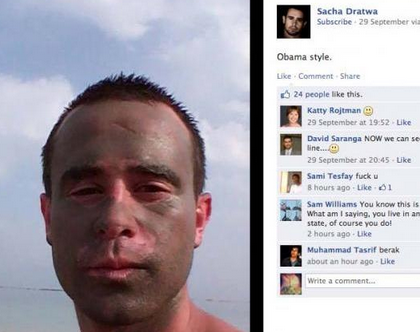
<a href="http://www.shutterstock.com">Maksym Bondarchuk </a>/Shutterstock
A scholar and a political commentator are about to let fly to some very, very dangerous speech at a New York college next week. It’s so dangerous, in fact, that four Democratic members of Congress are getting involved.
Next Thursday, Brooklyn College’s political science department and the student group Students for Justice in Palestine are scheduled to hold a panel discussion with philosopher Judith Butler and Omar Barghouti, a Palestinian political analyst, on something called “BDS.” BDS stands for Boycott, Divestment, and Sanctions, the controversial international movement that pushes to get Israel to withdraw its settlements from the Palestinian territories by boycotting Israeli products, divesting from Israeli industries, and imposing sanctions.
The coming event has pro-Israel groups up in arms (Butler definitely has some controversial ideas about Hamas). But other people are jumping on board fast. One city official said the discussion of a movement critical of Israeli policy could bring a “second Holocaust.” But the latest voices of outrage come from even higher up. On Thursday, four members of Congress from New York, along with other high-level New York officials, sent a letter to Brooklyn College’s president calling for the political science department to withdraw their support from the event.
The letter, which was signed by Democratic Reps. Yvette Clarke, Hakeem Jeffries, Jerrold Nadler, and Nydia Velasquez, as well as members of the State Assembly and city council, states: “We collectively believe that the BDS movement is a wrongheaded and destructive one, and an obstacle to our collective hope for a peaceful two-state solution.” The letter asks Brooklyn College to “withdraw their endorsement” of the event because it is “one-sided.” They charge that by not presenting a “counter-perspective,” the institution is “stifl[ing] free speech.”
Corey Robin, an associate professor of political science at the college, where nearly one-fifth of the undergraduate population is Jewish, says this kind of intervention is “unprecedented. In the time I’ve been at Brooklyn College, since 1999, I can’t remember a single instance where you’ve had a formal public call like this” to withdraw support from an academic discussion. “I’ve never seen members of Congress doing this, as well. It’s scary.”
Robin takes issue with the idea that the entire college is “endorsing” the BDS movement by allowing students to invite people to come talk about it at the political science department. “We are not organizing this forum,” he says, referring to his department. “We did not invite these speakers. It is not our place to tell students whom they can and cannot include on a forum. That would be a very severe violation of students’ academic freedom.”
The college’s spokesperson told the New York Times that “cosponsorship” doesn’t mean endorsement, and said the administration encouraged students to hold events that presented differing viewpoints.
A spokesman for Nadler said in an email that “[w]hile the college may say that ‘sponsorship is not endorsement,’ the fact that its imprimatur is on the event is de facto promotion of the event. And I wonder whether the college would likewise put its imprimatur on a student event promoting, say, the disgusting notion of ‘white racial superiority.'”
Clarke said that whether you call it endorsement or sponsorship, “it is a disservice to our community to put the weight of an institution behind an event that does not provide for diversity of thought or an opportunity for others to share their points of view.” Jeffries reiterated his objection to the political science department’s “apparent endorsement of one perspective.”
Velasquez’s office did not respond to a request for comment.
The Democratic representatives and anti-BDS advocates argue that the college should bring in someone with an opposing viewpoint to speak in order to make the event more fair. Robin says this kind of demand is also unprecedented: “We routinely convene panels on issues. I have never had a request that we have to present opposing view.”
He says the department has brought in other controversial speakers, such as former Black Panther Kathleen Neal. David Horowitz, the conservative pro-Israel commentator, has also spoken at the college. Next month, Glenn Greenwald will give a lecture at the department on civil liberties, Robin says. “Are we now obligated, if someone doesn’t like him, to present an anti-civil-liberties position?” Robin asks. “Controversial speakers are part of what academic education is all about.”















